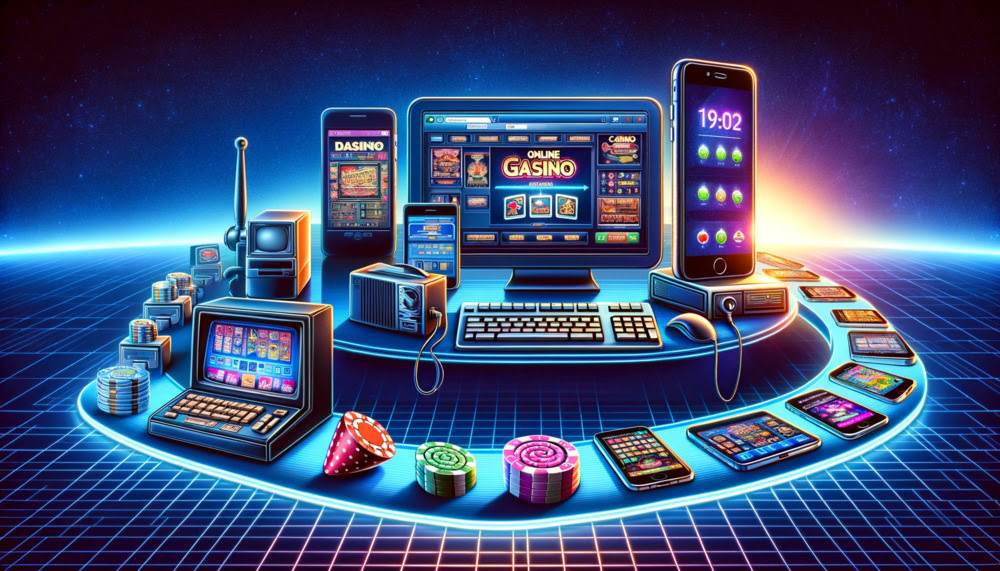
The Evolution of Online Gambling: From Desktops to Smartphones
The world of gambling has undergone a remarkable transformation, evolving rapidly from the neon lights of traditional casinos to the digital realm. This evolution has been particularly pronounced in the transition from desktop-based online gambling to the smartphone era. Today’s online gambling landscape is vastly different from its inception, shaped by technological advancements and changing consumer preferences.
The Early Days of Online Gambling
Online gambling initially took root in the mid-1990s, a period marked by the advent of the internet. Early online casinos were desktop-based, offering a new way to experience gambling from the comfort of one’s home. These platforms, although revolutionary, were limited by the technology of the time, offering a modest selection of games with basic graphics and user interfaces. However, they laid the foundation for what was to become a multi-billion dollar industry.
Technological Advancements and the Shift to Mobile
The proliferation of smartphones has been a game-changer for online gambling. With the rise of mobile technology, many platforms have redefined the user experience, offering games that are both accessible and visually stunning. This shift to mobile gambling was fueled by the advent of advanced smartphones with high-resolution displays, robust processors, and improved internet connectivity, enabling casinos to deliver immersive gaming experiences on the go. These innovations allow players to enjoy seamless and engaging gameplay anytime, anywhere.
Comparative Analysis: Desktop vs Mobile Gambling
While desktop gambling provided the initial blueprint, mobile platforms have taken the experience to new heights. The key differences lie in accessibility and convenience – smartphones allow players to gamble anywhere, anytime. Mobile interfaces are designed for ease of use, with games optimized for touch screens. However, desktop gambling still holds appeal for players who prefer larger screens and a more stable internet connection, especially for live dealer games.
Mobile Gambling: Features and Innovations
Mobile gambling isn’t just about portability; it’s about innovation. Modern mobile casinos offer a wide array of features like multi-touch interfaces, location-based services, and seamless integration with payment methods. Innovations such as augmented and virtual reality games are also on the rise, promising to transform the mobile gambling experience further. These advancements are not only enhancing gameplay but are also making online gambling more secure and user-friendly.

Impact on the Gambling Industry
The shift to mobile gambling has had a profound impact on the gambling industry. It has broadened the market, attracting a more diverse demographic of players, including younger generations more attuned to mobile technology. The convenience and accessibility of mobile gambling have also led to significant growth in the industry, with online casinos expanding their offerings to cater to a mobile audience.
Challenges and Considerations
However, this evolution is not without challenges. Security concerns remain paramount, as mobile platforms are susceptible to various cybersecurity threats. Additionally, the regulatory landscape for mobile gambling is continually evolving, with jurisdictions grappling to keep pace with the rapid changes in technology and consumer behavior.
The Future of Online Gambling
Looking ahead, the future of online gambling is set to be dominated by mobile platforms. Emerging technologies like 5G, artificial intelligence, and blockchain are expected to further revolutionize the industry, offering even more immersive and secure gambling experiences. The integration of social media and gamification elements is also likely to continue, making online gambling more interactive and engaging.
Conclusion
The evolution of online gambling from desktops to smartphones is a testament to the relentless pace of technological advancement. As we look to the future, it is clear that mobile gambling will continue to shape the industry, offering players innovative, convenient, and secure ways to enjoy their favorite casino games. With platforms like Jackpot Village Online Casino leading the charge, the possibilities for what online gambling can achieve next are limitless.




